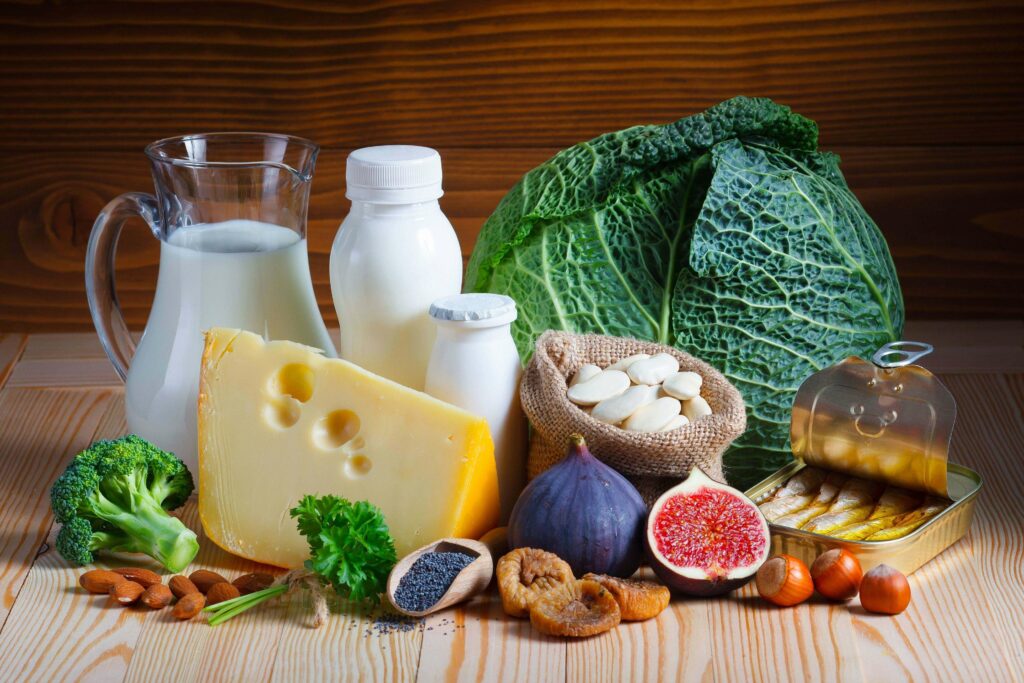


Calcium is an essential mineral required for the development and growth of bones, teeth, and other tissues. Adequate calcium intake is crucial during pregnancy for both the mother and baby’s health. During pregnancy, the mother’s calcium requirement increases to meet the needs of the growing fetus. Calcium also plays a vital role in regulating blood pressure, maintaining proper nerve and muscle function, and preventing the risk of osteoporosis. In this article, we will discuss the importance of calcium during pregnancy and the top calcium rich foods that pregnant women should include in their diet.
Calcium is necessary for the development of the baby’s bones, teeth, and skeletal system. The fetus gets its calcium from the mother’s diet, and if the mother’s diet is deficient in calcium, the fetus will take calcium from the mother’s bones, which can lead to osteoporosis later in life. Adequate calcium intake during pregnancy can also reduce the risk of pre-eclampsia, a potentially life-threatening condition that affects both the mother and the baby.

Pregnant women require approximately 1,000mg of calcium per day, which is 300mg more than non-pregnant women. If a pregnant woman is lactose intolerant or does not consume dairy products, she may need to take calcium supplements. It is essential to consult with a healthcare provider before taking any supplements.
In addition to the development of the baby’s bones and teeth, calcium also plays a crucial role in other aspects of pregnancy. Adequate calcium intake can help prevent muscle cramps, reduce the risk of premature birth, and improve the mother’s bone density. Calcium also helps in the absorption of other important nutrients such as iron and vitamin D.
If a pregnant woman is unable to meet her daily calcium requirements through diet alone, she may need to take calcium supplements. However, it is essential to consult with a healthcare provider before taking any supplements. Too much calcium can lead to constipation, nausea, and other side effects.
Calcium absorption can be affected by several factors, such as the presence of other nutrients in the diet and medications. Vitamin D plays a crucial role in the absorption of calcium. Pregnant women should aim to get at least 600-800 IU of vitamin D per day.
Including calcium-rich foods in the daily diet can be easy and delicious. Here are some recipe ideas that are high in calcium:
Incorporating calcium-rich foods into the daily diet can have numerous health benefits for both the mother and baby during pregnancy. By following the tips and recommendations in this article, pregnant women can ensure they are getting adequate calcium intake to support a healthy pregnancy.
In conclusion, calcium is an essential nutrient for pregnant women and plays a vital role in the development and growth of the fetus. Adequate calcium intake during pregnancy can help reduce the risk of pre-eclampsia, premature birth, and improve the mother’s bone density. The top calcium-rich foods for pregnancy include dairy products, leafy greens, seafood, nuts and seeds, fortified foods, legumes, and figs. By including these foods in the daily diet and following the tips for increasing calcium intake, pregnant women can ensure they are getting enough calcium for a healthy pregnancy. It is essential to consult with a healthcare provider before taking any calcium supplements or making significant changes to the diet. With proper nutrition and care, pregnant women can support their own health and the health of their growing baby.
Read Also:
Face Yoga For Glowing Skin: Get a Youthful and Radiant Look
What Is The Difference Between PCOD and PCOS
Migraine Treatment in Ayurveda: A Comprehensive Guide
How To Use Essential Oils For Sinus Relief?
Can Spicy Food Cause Acne? Debunking the Myths and Examining the Science